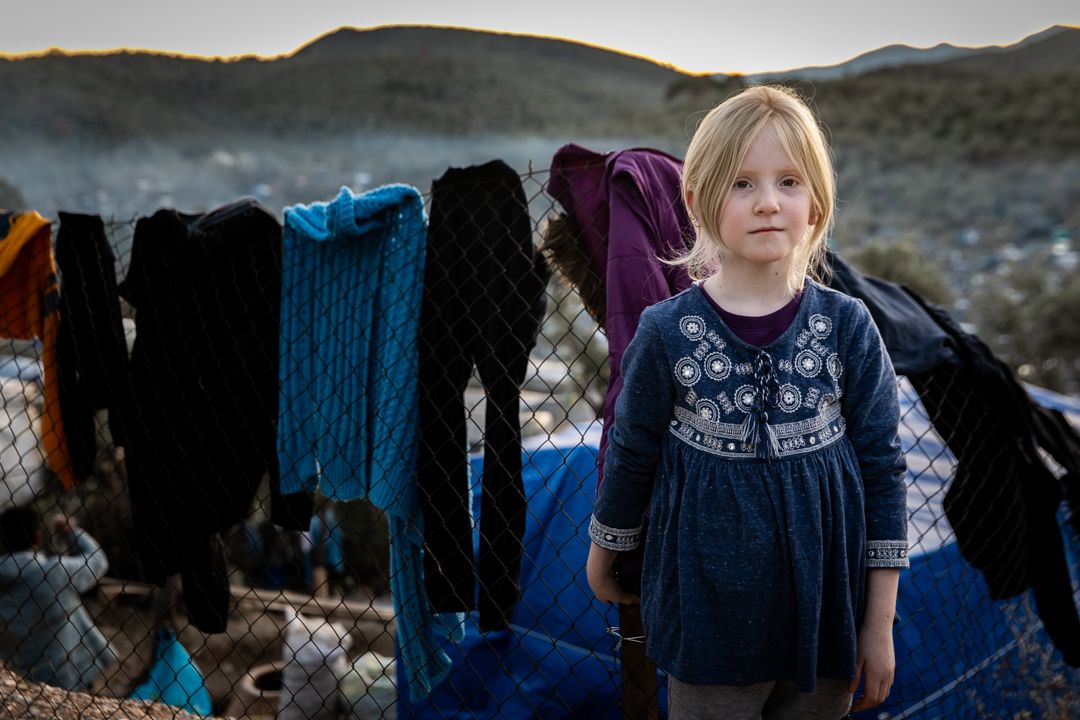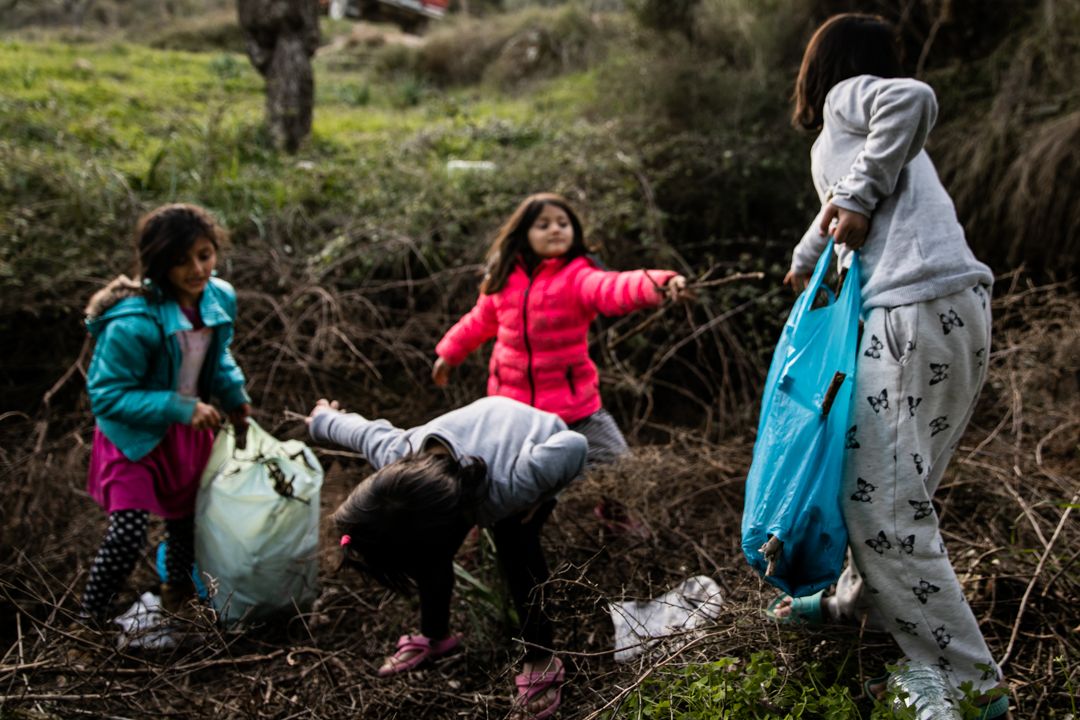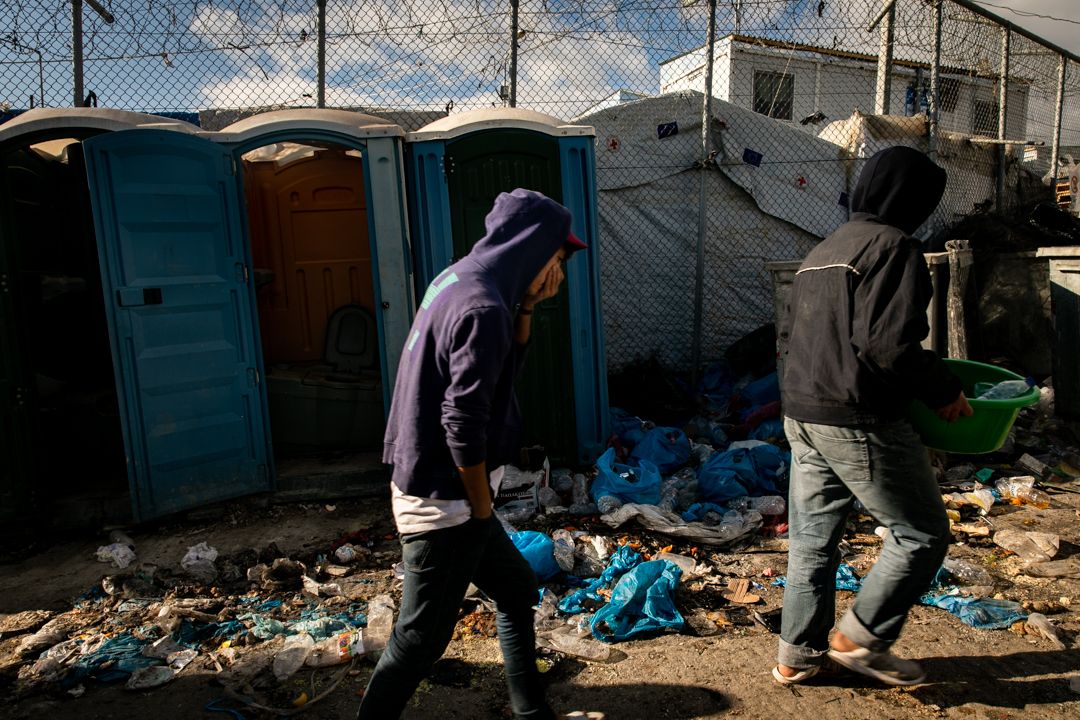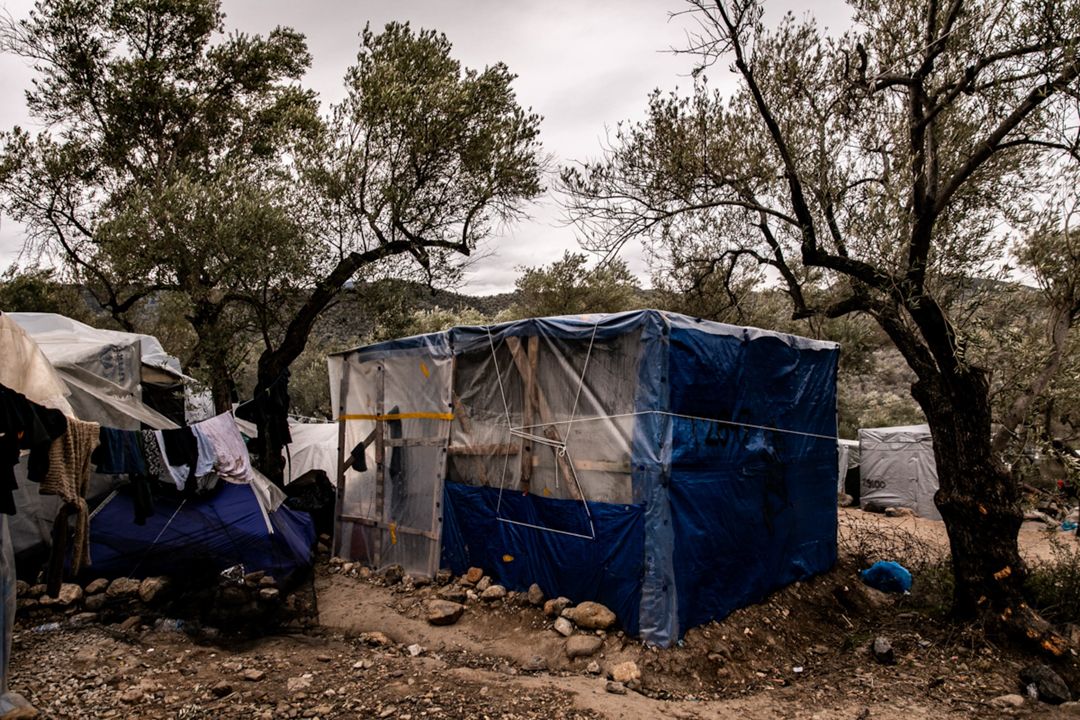As the coronavirus continues to spread, we are all being urged to routinely wash our hands, disinfect surfaces, and practice "social distancing.” Of all things, toilet paper has inexplicably become coveted and a mix of uncertainty and fear has driven people to stockpile food, water, and medicine.
Unlike other crises, the coronavirus is exceptional in part for its global impact. But the degree to which one is affected and how equipped one is to mitigate risk or endure quarantine is often determined by factors beyond control. Among the most vulnerable are the millions of people displaced worldwide; for those in Moria the precautions we exercise today and the comfort in which we wait are not an option.
Maranie Staab, 2020 Reporting Fellow from Syracuse University, writes about life in Moria, Europe's largest refugee camp on the Greek island of Lesbos, for VICE, in a piece titled "Raw Sewage, Mountains of Garbage, and the Coronavirus: the Devastating Conditions Inside Europe’s Largest Migrant Camp." Staab says, "It is "a place where individuals are stripped of autonomy, stuck in bureaucratic limbo and now forced to remain in overcrowded conditions as coronavirus threatens to spread among the near 21,000 residents."
As one refugee—a mother who landed on Lesbos in a large inflatable raft last October—tells her, "'If I stayed in Afghanistan, I knew I would die, but here I die a little every day.'"







